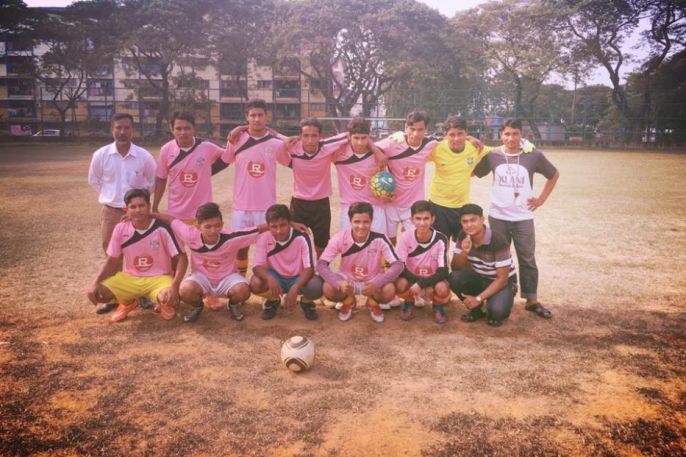After years of neglect in the field of politics, a group of Rohingya refugees in Kuala Lumpur has moved to the football pitch to begin building a better future for its community. For two years, the Rohingya Football Club has won friends and supporters around Malaysia for the Rohingya cause, and now, team the hopes to one day do the same in its homeland.
“The main objective of the Rohingya FC is to be a national team that represents the Rohingya people,” team chairman and co-founder Muhammad Noor toldCoconuts Yangon. “We want to tell Rohingya youngsters that they can be whatever they want in the world. We want to promote the social development of our people.”
Inspired by the Olympic Refugee Team, Rohingya FC was founded in January 2015 by bringing together Rohingya football enthusiasts from around Malaysia to represent their community on a single team.
The team travels around the country when the players can afford it and plays against other amateur teams. None of the members are professional footballers; most are laborers who work during the day and train in the evening.
For the refugees who populate the team, many of whom have survived trafficking and discrimination, playing with Rohingya FC has been life-saving.
“A refugee gets no limelight,” Noor, the team chairman, said. “But Rohingya FC is giving these refugees limelight, motivation and recognition. The players have gained a mission. They have become more professional. They have been offered jobs by people they’ve met through football.”
Leading goal scorer Farouk Yousuf told FourFourTwo earlier this month: “[For 90 minutes] you are just a footballer. You forget about being a refugee, you forget about the troubles your people face here and in Myanmar, everything.”
But Rohingya FC helps its players achieve more than personal development. During the team’s matches, members serve as ambassadors for the Rohingya people. Instead of being seen as poor refugees, they have come to be understood as talented and versatile.
The team’s ambassadorship on behalf of Rohingyas around the world has attracted the attention of international donors such as The Kick Project – an Australian NGO that seeks to promote peace and development through sports.
“It was clear to us that Rohingya FC presented a means by which the Rohingya community in Malaysia and elsewhere could get themselves ‘on the map’ in terms of wider awareness and build sustainable networks,” said James Rose, the founder of The Kick Project.
“We feel that reaching out in this way is an expression of peaceful inter-relations in the midst of a potentially difficult and tense situation.”
Rohingya FC has also partnered with UN Sustainable Development, which is helping the team expand and include more children in its activities.
Some of the team’s 15 management staff and 20 players came to Malaysia from Myanmar personally, while others were born in Malaysia. However, the goal of the team is not to remain in Malaysia forever.
“Of course, we want to return to Myanmar. We are trying to figure out how we can get back to our homeland,” said Noor.
One way this might happen, he said, is by playing against a Myanmar football team.
“If they are willing to play, we are willing. Even the Myanmar national team. We are a peace-loving people, and we want to reconcile,” said Noor. “Maybe if they recognize us as a football team, they will come to recognize us as a people.”
[related]
Noor’s faith in this sort of grassroots diplomacy is rooted in his theory about the origins of the persecution of the Rohingya by the Myanmar government.
“We were full citizens until 1982, after the army lied to the nation and told the people we were foreigners in order to strengthen its hold on the Arakan region. The military exploited ethnic and religious differences starting in the 1970s to turn Myanmar people against us,” he said.
“If the Burmese public was once filled with lies, it can be educated with the truth,” Noor said.
“Please tell the Myanmar national team,” he told Coconuts Yangon. “There can be no harm in playing.”
This story by Jacob Goldberg was originally published by Coconuts Yangon here.



